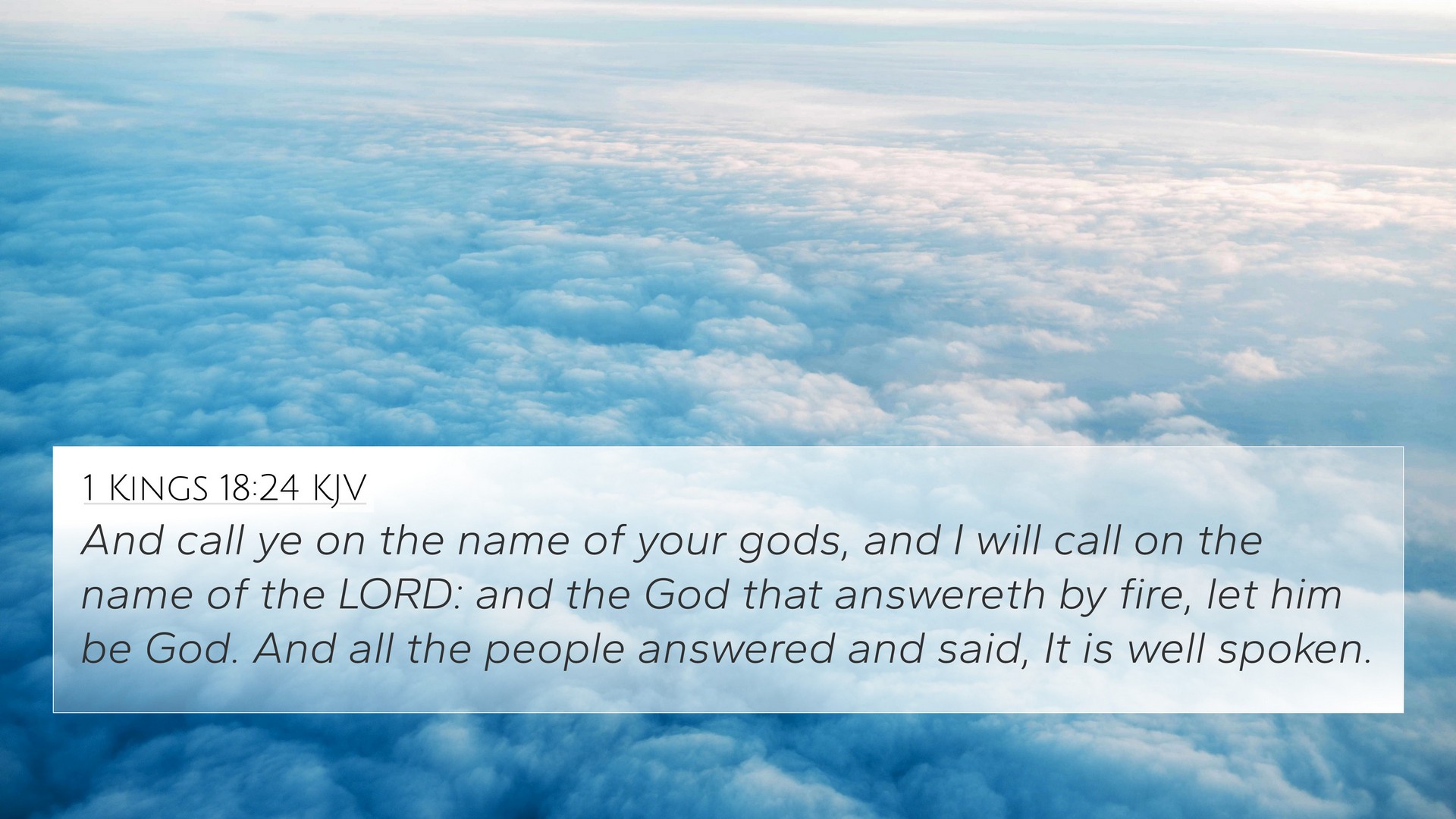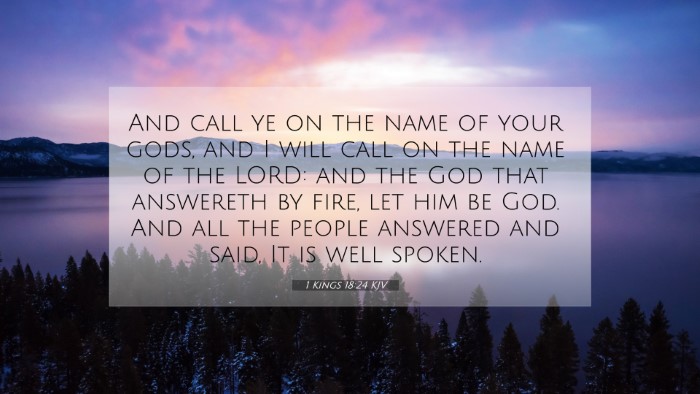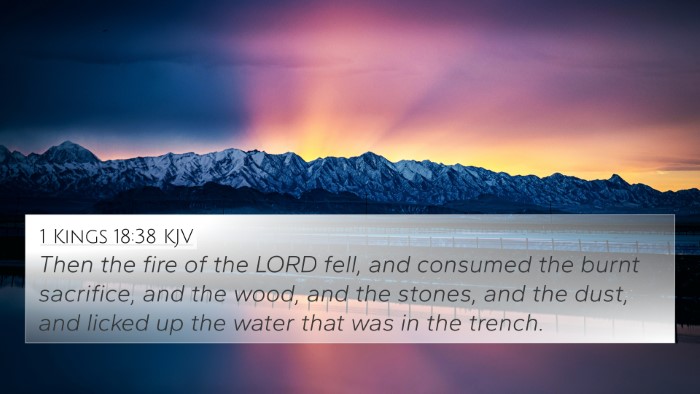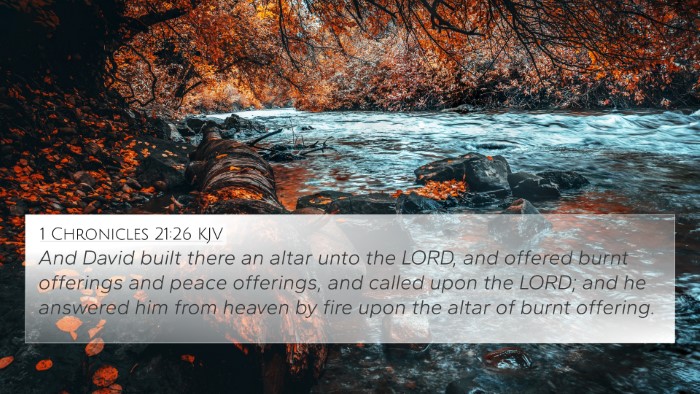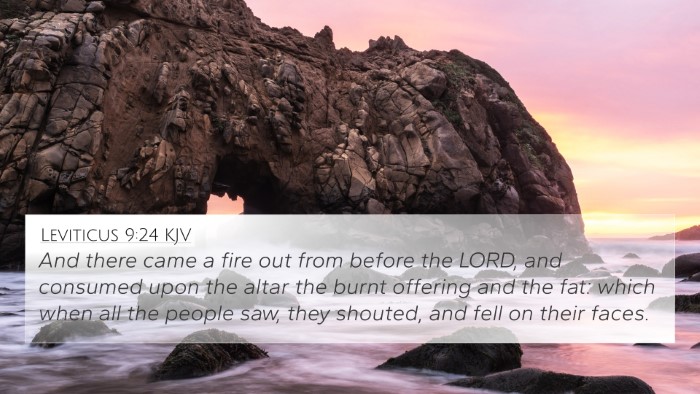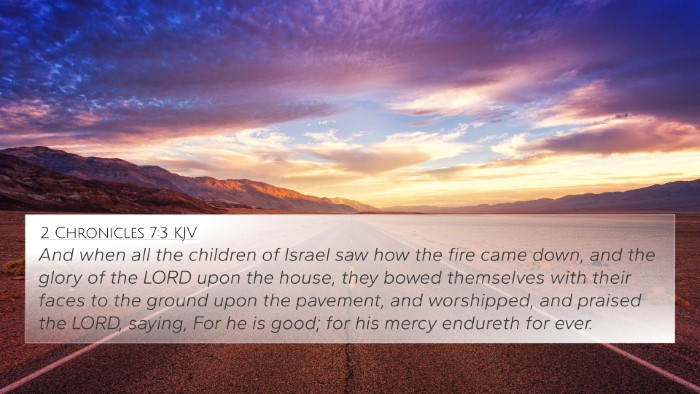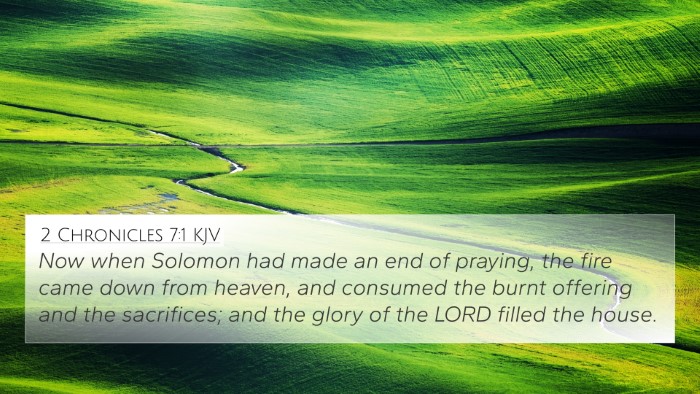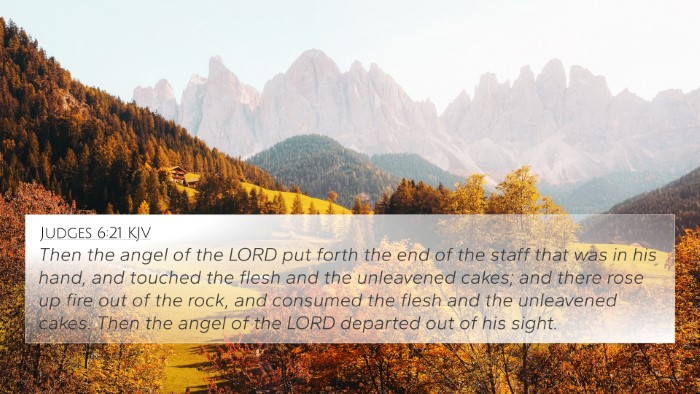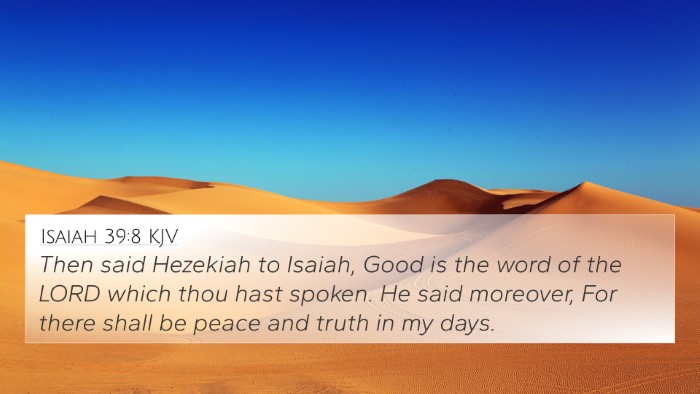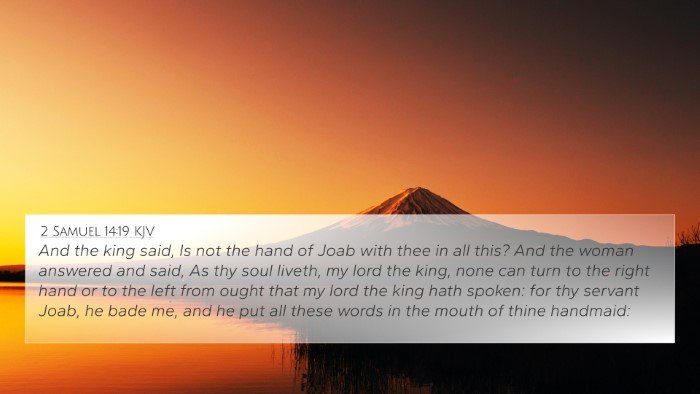Understanding 1 Kings 18:24
1 Kings 18:24 states: "And call ye on the name of your gods, and I will call on the name of the LORD: and the God that answereth by fire, let him be God. And all the people answered and said, It is well spoken." This verse occurs in the context of the dramatic confrontation between the prophet Elijah and the prophets of Baal on Mount Carmel. The significance of this verse is profound as it highlights the challenge posed by Elijah to the worshippers of Baal and sets the stage for demonstrating the supremacy of the God of Israel.
Verse Meaning
This verse encapsulates a pivotal moment in biblical history where Elijah calls for a contest to prove who is the true God. The essence of the verse can be summarized through various commentaries:
- Matthew Henry: Henry emphasizes the boldness of Elijah’s challenge, portraying him as a true servant of God who seeks to reveal the futility of Baal worship. He notes that this challenge serves to display God’s power and provoke the people to reconsider their loyalties.
- Albert Barnes: Barnes highlights the direct confrontation between the two sides, noting that the method of divine response (by fire) was significant, as it aligns with God's previous actions in the Scriptures, thus establishing a theological precedent. He explains that the people’s agreement with the challenge indicates a moment of clear choice between Yahweh and Baal.
- Adam Clarke: Clarke points out the dramatic nature of the encounter and interprets it as a test of faith and divine authenticity. He illustrates how this moment serves as a divine declaration against idolatry, as well as an appeal to the Israelites to return to true worship.
Bible Verse Cross-References
This verse ties into several other Scripture passages that emphasize the contest of faith and the recognition of God’s sovereignty:
- Exodus 20:3-5: Prohibitions against idolatry emphasize the call for exclusive worship of Yahweh.
- 1 Kings 17:1: Earlier in the narrative, Elijah proclaims a drought to highlight God’s authority over nature.
- Isaiah 44:24-25: This passage speaks to God as the creator in contrast to manmade idols.
- Jeremiah 10:10-11: It discusses the living God versus lifeless idols, reinforcing the themes found in 1 Kings 18:24.
- Matthew 10:32-33: The New Testament echoes the importance of standing for God in public, reminiscent of Elijah's bold declaration.
- James 1:5: It calls for asking God for wisdom, emphasizing reliance on Him, akin to Elijah’s reliance on God’s response.
- Hebrews 12:28-29: This passage encourages reverence for the kingdom that cannot be shaken, paralleling the confidence Elijah has in God’s immutable nature.
Key Themes
The central themes of faith, divine authority, and the stark contrast between true worship and idolatry can be observed throughout Scripture.
Connections between Bible Verses
1 Kings 18:24 opens up extensive connections with both Old and New Testament passages, facilitating a comparative Bible verse analysis:
- In comparing 1 Kings 18:24 with Hebrews 11:1, we see a definition of faith that supports Elijah's faith-filled challenge.
- The challenge to the prophets of Baal echoes examples of God proving His might, such as seen in Exodus 14:21-22, where He parts the Red Sea.
- Furthermore, the principle of God responding dramatically to the prayers of those faithful to Him is seen in Acts 2:3-4 during the Pentecost.
How to Use Bible Cross-References
Engaging in cross-referencing Biblical texts like 1 Kings 18:24 can enrich one’s understanding of Scripture. Tools for Bible cross-referencing can include:
- Bible concordances that list verse connections to explore themes in-depth.
- Cross-reference guides to enhance personal Bible study methodologies.
- Comprehensive Bible cross-reference materials available in many translations.
Identifying Connections: Tools and Methods
To gain a more profound insight, consider these methods:
- Look for common themes across books of the Bible, such as the contrast between divine power and human failure.
- Explore connections between the Prophets and Apostolic teachings to understand the continuity of God’s message.
- Use a relational approach to connect verses from different Testaments.
